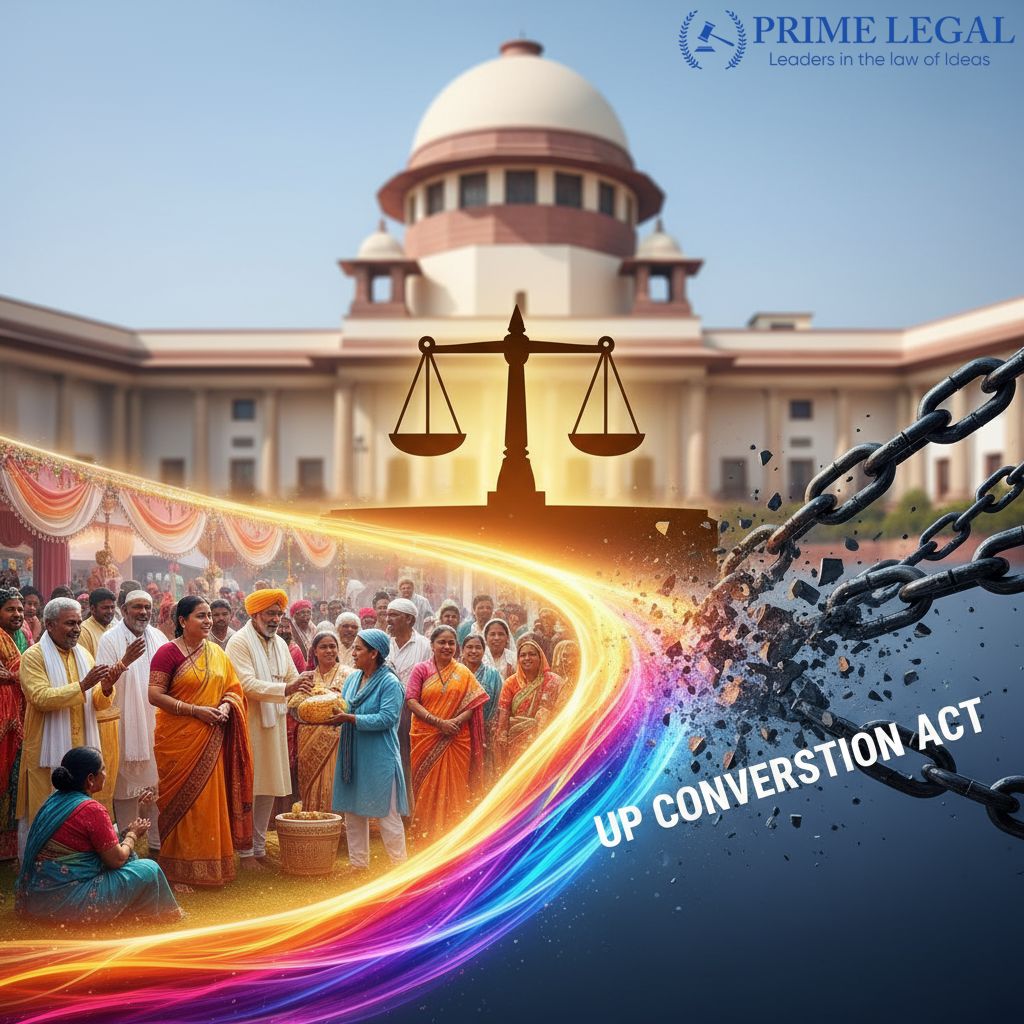Introduction
The Supreme Court has quashed several FIRs registered in Uttar Pradesh against the Vice-Chancellor and other university officials of Sam Higginbottom University of Agriculture, Technology, and Sciences (SHUATS). The FIRs were rooted in the U.P. Prohibition of Unlawful Conversion of Religion Act, 2021, along with IPC offences. The case was heard by a Bench comprising Justice JB Pardiwala and Justice Manoj Misra. The concerned case is Rajendra Bihari Lal and Anr. v. State of U.P. and Ors. [Rajendra Bihari Lal and Anr. v. State of U.P. and Ors. W.P.(Crl.) No. 123/2023 and connected cases]
Background
In this case, multiple FIRs were lodged in Uttar Pradesh. The first FIR alleged mass conversion of 90 persons at a Maundy Thursday event in the Evangelical Church of India. It was filed by the Vice-President of the Vishwa Hindu Parishad (a third party, not an alleged convert). After this, several FIRs were filed based on similar allegations of unlawful conversion by way of gifts, clothing, job offers, or marriage into Christianity. There were also allegations of threats and firing. The SHUATS officials challenged these FIRs, contending that they were frivolous, that witnesses were mechanically produced, and that there was a lack of proof to show any unlawful conversion.
Key Points
FIR under UP Conversion Act- Section 4 of the Act permitted only a victim or their family to file a complaint in case of unlawful conversion. On this point, the Court held that the first FIR was unsustainable because it was filed by a third party (VP of Vishwa Hindu Parishad), and not the victim or their relative. The Act barred any third party from doing so. The Attorney General of India, R Venkataramani, argued that the general CrPC would prevail over this Act. The Court rejected this argument and held that special laws prevail over the general law.
Multiplicity of FIRs- The Court quashed several FIRs on the ground that all of them concerned one incident and multiple FIRs are not needed. It applied the principle laid in T.T.Antony v. State of Kerala. [T.T. Antony vs. State of Kerala is (2001) 6 SCC 181]
Infirmities in Investigation- The Court found various defects in the investigation process, which created a question over the credibility of the evidence. It was found that witness statements across FIRs were identical, cyclostyled as they duplicated typographical errors, and names were repeated. It was also found that no witnesses were converted or present at the scene of the incident. The evidence produced showed the incident entailed a religious gathering and Bible preaching. Nothing on record showed inducement. Due to this, the Court decided to quash the FIRs.
Scope of the UP Conversion Act- The Court held that the UP Conversion Act and the IPC do not make religious gatherings or charitable work in the name of religion an offence. The scope of the Act is limited to unlawful conversion. It urged the people not to use criminal law to harass innocent persons.
Recent development
The UP Conversion Act was amended by the Uttar Pradesh Prohibition of Unlawful Conversion of Religion (Amendment) Act, 2024. It changed the scope of Section 4 by allowing “any person” to file a complaint on the grounds of unlawful conversion. There were amendments to enhance punishments under Section 5 as well. This step expands the space to file complaints, which may curtail voluntary conversions, which is one’s right under Article 25 of the Constitution.
Conclusion
In the present case, the Supreme Court clarifies the scope of conversion laws by affirming that it does not extend to religious gatherings or charitable work in the name of religion per se. It required more than a mere gathering to constitute an offence under conversion laws. The viewpoint adopted by the Court is well-balanced to ensure the exercise of one’s rights under Article 25 of the Constitution.
“PRIME LEGAL is a full-service law firm that has won a National Award and has more than 20 years of experience in an array of sectors and practice areas. Prime legal falls into the category of best law firm, best lawyer, best family lawyer, best divorce lawyer, best divorce law firm, best criminal lawyer, best criminal law firm, best consumer lawyer, best civil lawyer.”
WRITTEN BY: FARZEEN ZAMAN


